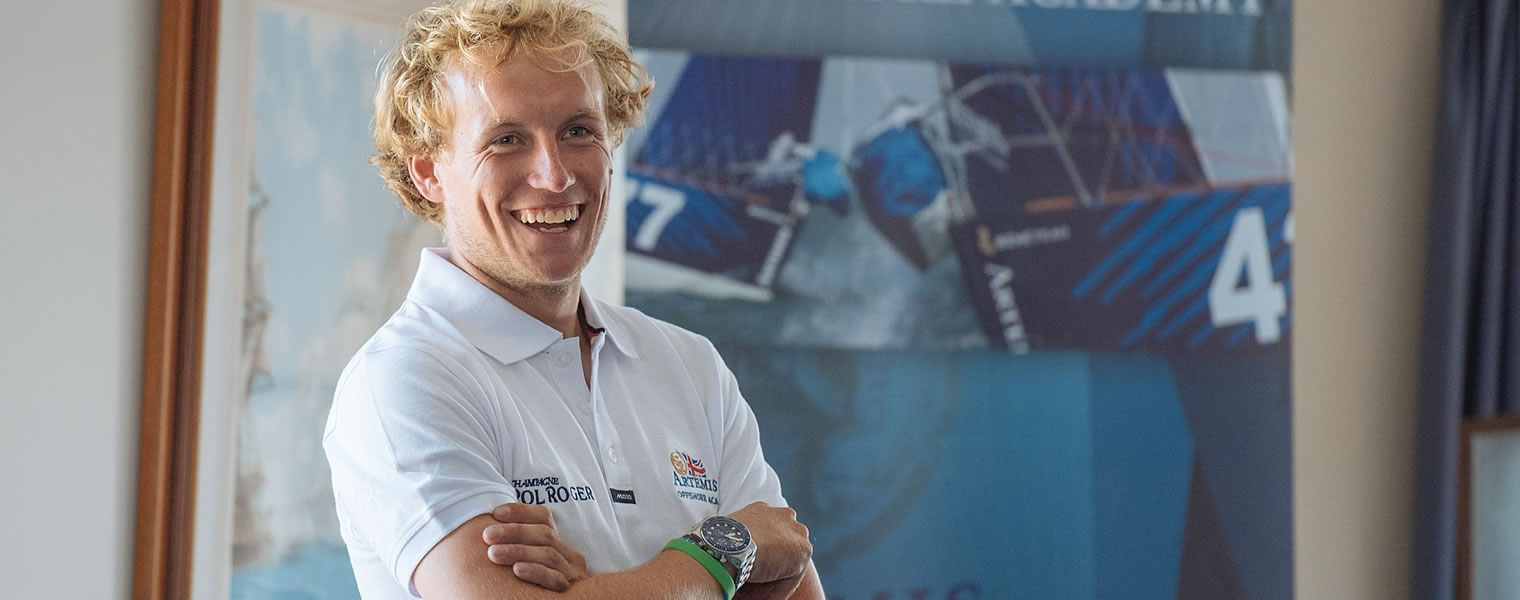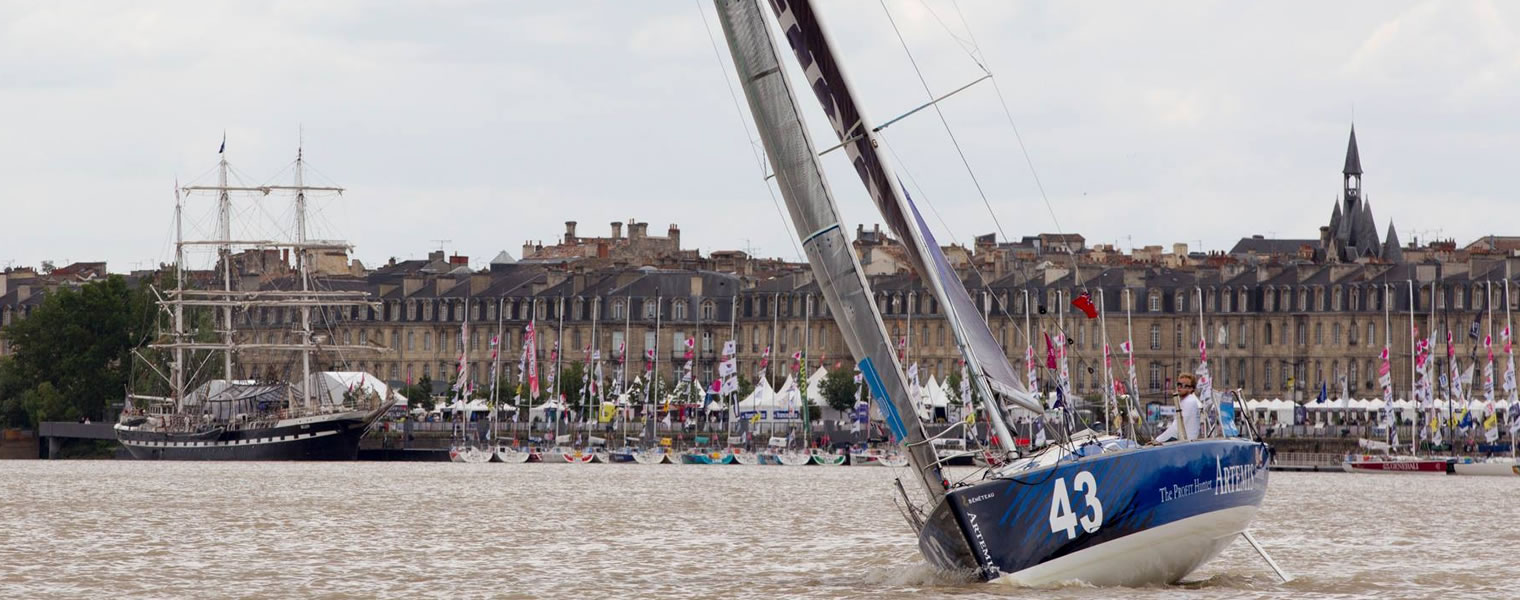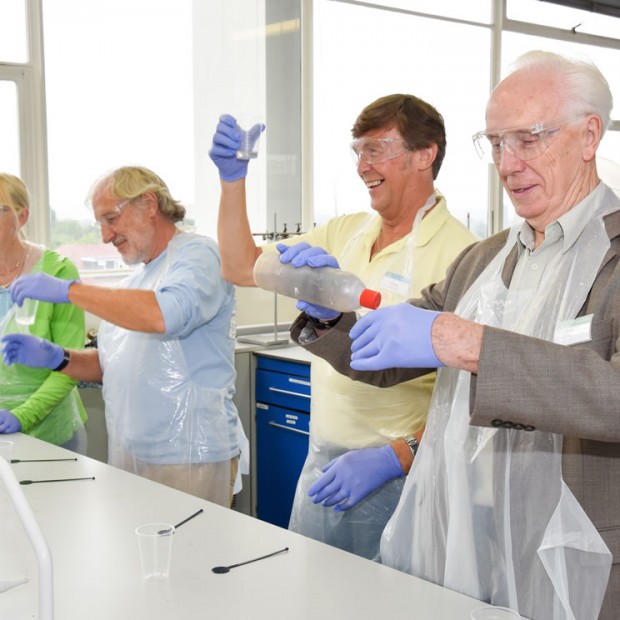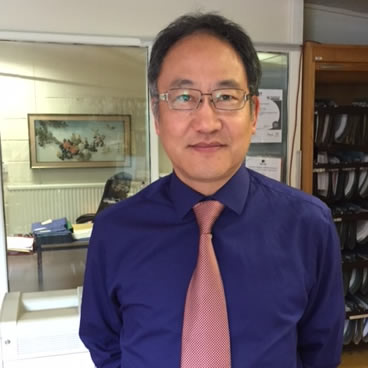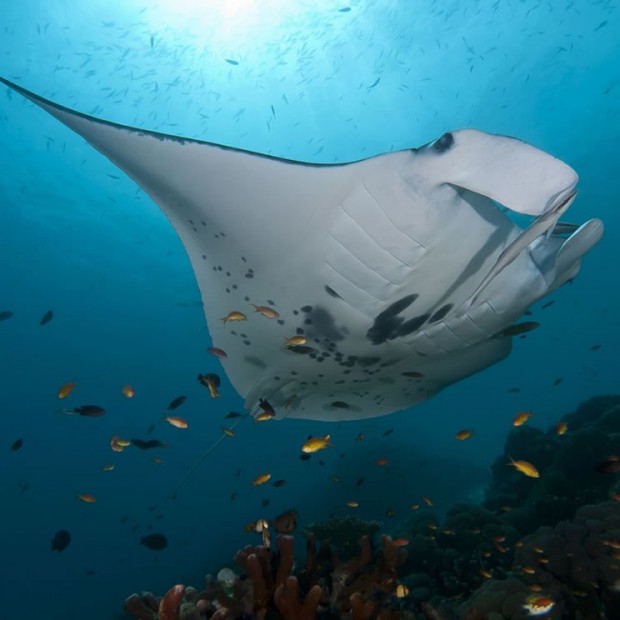Hartley News Online Your alumni and supporter magazine
Solo offshore sailor Robin Elsey (Geology, 2014) is already making his mark in global sailing events and has his sights set on the Vendée Globe.
Why did you choose Southampton?
Partly for the location and partly the course. I have been sailing since I was five, so it was important that I could carry that on. The geology course was also good – I had offers from London but the course wasn’t as good and I wanted to be closer to the countryside and the environment I grew up in.
How did you balance your coursework and sailing?
It was difficult. I spent Freshers’ Week on the selection trials for the Artemis Offshore Academy (a UK training programme of excellence for aspiring British sailors), and a month away doing the Tour of Arabia. University won out in the two final years, although I was sailing on the day of my graduation!
What have you done since university?
I joined Artemis full time. Young sailors interested in getting into offshore solo yacht racing find it incredibly difficult to find financial backing. A boat costs in the order of £60,000, and a campaign costs significantly more. It’s the biggest barrier to entering the sport. Artemis have their own Figaro boats, which is a big help. I sailed their Figaros through university in a part-time role. When I went full-time on graduating, I sailed the Figaro circuit in France with them. Now they are supporting me with the boat, and I have to find the rest of the funding for the campaign this year.
Trying to find sponsors is hard work and I’m not there yet. It’s a lot more business-like than people might think. It is stressful to find money when you have done quite a good job in terms of results, but it is all part of the challenge.
How has your time at Southampton helped?
It helps with my performance. My approach to sailing is very analytical, and I look back at races through numbers. Those are skills taken from my course. It has also helped with the business side – being able to talk to potential sponsors and present myself professionally.
How was last year?
I had a fantastic year. I was first rookie in the Solitaire du Figaro (described as the unofficial world championship of solo offshore racing), and was only the second ever non-French person to take that title. Going into the final leg, after 1,500 miles’ sailing, my overall time was just 10 seconds ahead of my main rookie rival! It was one of the toughest races I’ve ever done but also amazing. I also won some awards at the RORC (Royal Ocean Racing Club) series during the second half of the season.
After I finished the Solitaire I ended up sailing on Artemis Ocean 60, which is the same boat they use in the Vendée. I will hopefully be doing the same this year, and a transatlantic race if the money becomes available. It is all part of the build up to competing in the Vendée Globe, which is my ultimate goal.
The French dominate solo offshore racing. With a more professional approach and greater support for sailing in the UK, can we break that dominance?
We are starting to see it with programmes like Artemis, where fellow alumni Will Harris (Oceanography, 2015) is currently training. The way we are approaching things is good. We are putting all the right steps in place to make it happen, particularly the transition from a Figaro to an Ocean 60.
We are also taking a more analytical approach, using software for goal-setting for example. Ben Ainslie Racing is a classic example of the benefits of bringing a more analytical approach to the whole thing. Ben is a fantastic role model and is doing a great job in pushing the sport forward.
Why do you love sailing?
I love the freedom and the challenge. My goal has always been the Vendée Globe, which is one of the toughest challenges on the planet. It’s about pushing yourself and finding your own limit in a competitive environment. On the Solitaire du Figaro race, the average amount of sleep you get in a day is one-two hours, and each leg is five days. You push yourself to the absolute limit and that is what draws me.
Can you see yourself doing anything other than sailing?
Not at the moment. I want to be the first British person to win the Vendée Globe. There is a fair way to go, but I’m enjoying doing what I am doing and I have some unfinished business.
